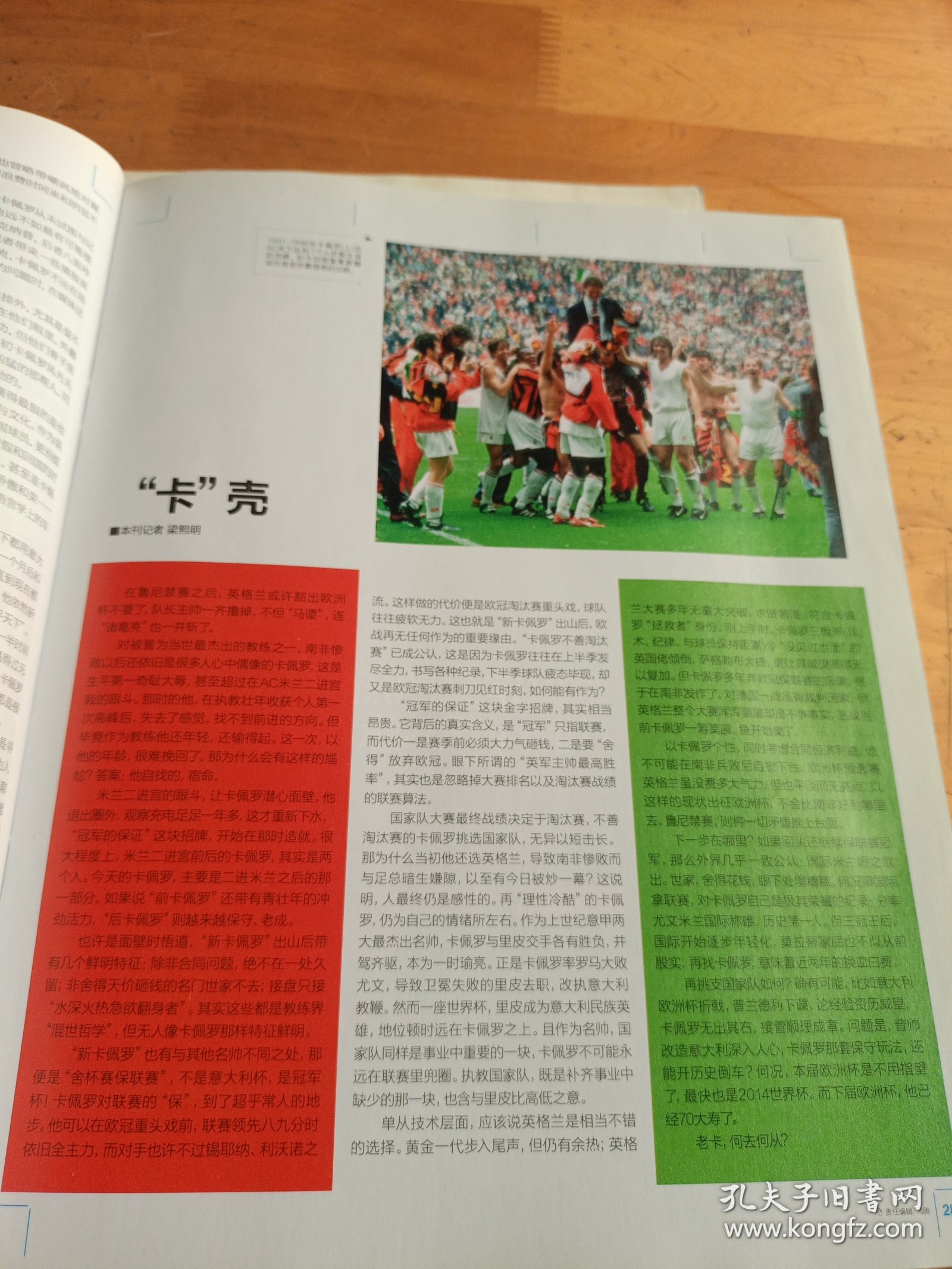英文后面就是《健康中科》原创译稿
所以请大胆往下翻吧!
Is Facebook Luring You Into Being Depressed?
作者足球英文杂志:chelsea wald &jackie ferrentino
In his free time, Sven Laumer serves as a referee for Bavaria’s highest *** football league. A few years ago, he noticed several footballers had quit Facebook, making it hard to organize events on the platform. He was annoyed, but as a professor who studies information systems, he was also intrigued. Why would the young men want to give up Facebook? Social scientists had been saying the social network was a good thing.
“At the time, the main paradigm in social networking research was that Facebook is a positive place, it’s a place of happiness, it’s a place where you have fun, you get entertained, you talk to friends, you feel amused, accepted,” says Hanna Krasnova, an information systems researcher at the University of Bern in Switzerland. Influential studies had shown that the social capital we earn on social media can be key to our successes, big and *** all. Our virtual connections were known to help us access jobs, information, emotional support, and everyday favors. “Everyone was enthusiastic about social media.” Laumer says.
Laumer, an assistant professor at Otto-Friedrich University in Germany, suspected that quitting Facebook was a classic response to stress. Through probing interviews, surveys, longitudinal studies, and laboratory experiments, researchers have begun to shift the paradigm, revealing that Facebook, Twitter, Instagram, Snapchat, and their ilk are places not only of fun and success, but of dark, confronting, and primal human emotions—less Magic Kingdom and more creepy fun house. In many ways, researchers say, these platforms are giant experiments on one of our species’ most essential characteristics: our social nature. So it shouldn’t be a surprise there are unintended consequences.
“No one constructed something to make people feel bad or good,” says Ethan Kross, a social psychologist at the University of Michigan. “But, what we’re looking at is, how does it actually play out and impact people in daily life?”
One consequence may be that using Facebook can lead you to feel a little bit sadder - a phenomenon popularly known as “Facebook depression.” In their 2013 study of Facebook, Kross and his colleagues text messaged 82 people - mostly undergraduates recruited in Ann Arbor, Michigan - five times a day to ask how much they had used Facebook and how they felt. “What we found was that, the more people reported using Facebook during one moment in time, the more their self-reported mood declined from the beginning of that period to the end,” Kross says.
Why? Laumer and his colleagues noticed that, for some of the participants, Facebook’s News Feed didn’t feel entertaining; it loomed like a long list of demands. Cheer me up. Comfort me. Wish me a happy birthday. Fund my Kickstarter. Like this new profile picture. Read my new feature in Nautilus. Social networking sites blast users with requests in ways never before possible. Requests don’t go out one-to-one; they go out like buckshot, one-to-many. No wonder people get stressed by them. Stress is what arises when people feel that they don’t have the resources or ability to cope with some perceived threat - in this case, the threat of what Laumer calls “social overload.”
Ironically, social overload is the flip side of what other researchers have found to be one of the most positive aspects of social media: social sharing. Sharing one’s problems with others online can reduce stress associated with everything from everyday pressures to life transitions to natural disasters, says medical sociologist Shelia Cotten of Michigan State University, who, in one study, found that Internet use can decrease loneliness in older Americans. “There’s a whole lot of social support that gets exchanged that can have very beneficial aspects to your health and well-being and can help to alleviate stress.” The problem is, as you’re alleviating your stress, you’re putting it onto others.
Sociologist Keith Hampton of Rutgers University, who has conducted social media surveys for the Pew Research Center, calls this second - hand stress “the cost of caring.” It should be no surprise, he says, that women tend to pay this price more than men, since they carry much of the burden of care for family and friends both online and off. “When you’re aware of bad things happening to people you know, not only does it bring stress to your life, but it also allows you to provide them with social support and empathy,” he says.
But not all friends are created equal online. On social media, we can keep adding contacts ad infinitum - including people we rarely or never see in real life. “For the first time in modern history, ties are persistent in a way they haven’t been before,” Hampton says. Laumer and his colleagues found social overload is more likely to strike people who have more Facebook - only friends.

That makes sense. In the 1990s, anthropologist Robin Dunbar proposed that human beings have the time and bandwidth to sustain 100 to 200 friendships at a time. In a recent study involving 1.7 million users, Dunbar and his colleagues found that Twitter users maintained “stable social relations” with about that same number on average. But if we have about 150 friends we regularly contact and think about on Facebook or Twitter, and they all regularly put out social support requests, then we’re already juggling more demands than our ancestors ever would have. Where do we fit in our real friends? Many overwhelmed users consider just quitting wholesale. “Social overload has a strong effect on exhaustion,” Laumer says.
When Krasnova and her colleagues asked 357 subjects - mostly from Germany - how they felt after using Facebook most recently, only 1.2 percent of them said envious. So she rephrased the question: “Many users report feeling frustrated and exhausted after using Facebook. What do you think causes these feelings?” In this case, the most popular response (29.6 percent) was envy. Not only is envy a common feeling for people using Facebook; it’s “rampant,” she says.
Krasnova notes that one way people find temporary relief for the pain of envy is by bolstering their own self-presentation. That threatens to generate an “envy spiral” on social networks, she warns. “Users are exposed to positive content, they post even more positive things, then their recipients post even more positive things. And so on. And then this world of Facebook becomes more and more detached from reality.”
(来源:Nautilus Magazine)
《健康中科》原创译稿
社交 *** 诱使足球英文杂志你变得抑郁吗足球英文杂志?

翻译:王雅婷
在闲暇时间足球英文杂志,斯文?劳莫是巴伐利亚顶级业余足球联赛的一名裁判。几年前,他注意到几个足球运动员已经不再使用脸书,这使得在 *** 平台上组织活动更加困难。他有点儿烦恼,但是作为一名研究信息系统的教授,他也对这一行为感到好奇。为什么年轻男性放弃使用脸书呢?社会科学家可一直认为社交 *** 是一件好事啊。
“当时,社会 *** 研究的主要范式都认为,脸书是一个积极的东西,它是一个快乐的地方、好玩的地方,在脸书上,你可以跟朋友对话,它是一个让人们感到快乐、感到被认同的地方。”汉娜·克拉斯诺亚,瑞士伯尔尼大学从事信息系统研究的一名教授说道。有影响力的研究表明,足球英文杂志我们在社交媒体上获得的社会资本对我们的成功是至关重要的,无论该资本的大小。社交 *** 上这些虚拟连接可以帮助我们获得工作机会、信息、情感支持以及日常的小帮助。“那时,每个人都对社交 *** 非常热情。” 劳莫说。
另个一劳莫,德国弗里德里希大学的助理教授,则认为退出脸书是一种应对压力的典型反映。通过访谈、调查、研究以及实验室试验,研究人员已经开始改变曾经的范式,他们发现,脸书、推特、Instagram、Snapchat以及其它社交 *** 不仅意味着快乐和成功,同时它们也面对了黑暗和对抗性的原始人类情感:与其说它们像游乐场中的神奇王国,不如将其视为游乐场里的恐怖屋。研究人员认为,从多种角度来看,这些社交平台是针对我们人类最基本的特征之一——社会性的一场巨大实验。因此,对这些意想不到的后果,我们不应该感到意外。
密歇根大学的社会心理学家伊森·库罗斯说:“没有人会特意制造一些令人感觉良好或糟糕的东西。”“但是我们研究的是,社交 *** 是如何在日常生活中发挥作用并影响人们的呢?”
一个后果可能是使用脸书会让你感到有点悲伤,这种现象通常被称为“脸书抑郁”。在2013年对脸书的研究中,库罗斯和他的同事给82人发了短信,其中大多数是在密歇根安娜堡当地招募的本科生。他们一天给这些学生发了五次短信,询问他们使用脸书的频率和感受。“我们发现,在某一时刻使用脸书的时间越长,从这一时刻开始到结束,他们自我报告的情绪也就越糟糕。” 库罗斯说道。
为什么会这样呢?劳莫和他的同事们注意到,对于一些参与者来讲,刷脸书并不能让他们感到愉悦。脸书上源源不断的要求:快来激励我、安慰我、祝我生日快乐、给我的基金投资、点赞我的新头像、来读我在《鹦鹉螺杂志》上发表的新稿件。社交网站以前所未有的方式,向用户发出众多请求。并且这些请求并不是以一对一的形式发出,更像是散弹,一对多。难怪人们会感到压力。当人们没有资源或能力去应对一些被感知到的威胁时,压力便产生了。在本案例中,这就是劳莫所说的“社交超载”威胁。
具有讽刺意味的是,社交超载的另一面恰恰是研究人员发现的社交媒体中最积极的方面之一:社会共享。密歇根大学的医学社会学家谢丽亚?柯登说,在网上与他人分享自己的问题可以减少压力,无论是日常生活压力还是自然灾害。她在一项研究中发现,互联网可以减少老年美国人的孤独感。“通过社交 *** ,人们可以获得大量的社交支持,这对人们的健康非常有益,并且可以减缓压力。”问题在于,当减轻自己压力的同时,这些压力被转移到了其他人身上。
罗格斯大学的社会学家基思·汉普顿对皮尤研究中心进行了社交媒体调查,他将这种二手压力称为“关爱成本”。他说,由于无论在线上还是线下,女性都承担着更多的关心家人和朋友的压力,因此看到女性承担比男性更多的“关爱成本”,我们不应该感到吃惊。他说:“当你意识到一些不好的事情发生在你认识的人身上时,这不仅会给你的生活带来压力,同时还会使你能够为他们提供社交支持和同情。”
但并不是所有的朋友在网上都是平等的。在社交 *** 上,我们可以无上限地添加好友——包括那些我们在现实生活中很少见或者从未见过的人。汉普顿说:“在现代史上,人类正以一种前所未有的方式相互联系着。” 劳莫和他的同事发现,社交超载更有可能打击的对象是那些仅在脸书上是好友的人。
这是有道理的。在20世纪90年代,人类学家罗宾·邓巴提出,人类只有同时维持100到200个朋友的时间和精力。在最近一项涉及170万用户的研究中,邓巴和他的同事发现,推特用户平均与差不多这个数量的人维持着“稳定的社交关系”。但是,如果我们有150左右的脸书或推特好友,他们时不时的跟我们联系,定期发出提供社交支持的请求,那么我们将面临着比我们的祖先多得多的社交需求,这会使我们手忙脚乱。这样一来,我们哪里还有时间和精力去维持真正的朋友呢?于是,许多应付不来的用户干脆选择退出脸书。“社交超载将造成巨大的疲惫感。” 劳莫指出。
当克拉斯诺亚和她的同事们向357名实验对象——大部分来自德国,询问他们最近使用脸书的感觉是什么,只有1.2%的人说是嫉妒。所以她重新组织了语言:“许多用户在使用脸书后感到沮丧和疲惫,你认为是什么引起这些感觉?”最普遍的回答(26%)认为是嫉妒。克拉斯诺亚表示,对于使用脸书的人来说,嫉妒不仅是普遍存在的,更是“猖獗”的。
克拉斯诺娃指出,人们找到了暂时可以排解嫉妒的 *** ,就是增强自己的自我表现。她警告说,这可能会造成社交 *** 上“嫉妒循环”。“用户暴露在积极的环境中,他们会发布更多积极的东西,然后他们的接收者又会发布更加积极的东西,这样无限循环下去。脸书的世界变得越来越脱离现实。”
( 摘自:《鹦鹉螺杂志》)
专家推荐
Experts
刘以焱
现任中科·名中医堂主任中医师
曾任靖安县中医院副院长、县人民医院医务科长,县中医药学会理事长。从事中医临床40多年。擅长消化系统疾病的治疗及用温热药治疗各种疑难杂症等疾病。
#中科体检关注健康#夕阳红体检套餐男性















发表评论
2025-05-13 19:04:19回复
2025-05-13 15:09:31回复
2025-05-13 20:16:00回复